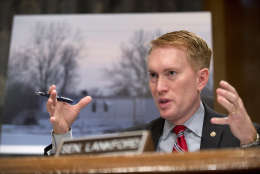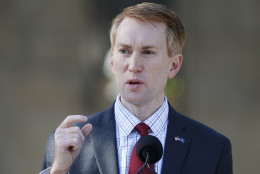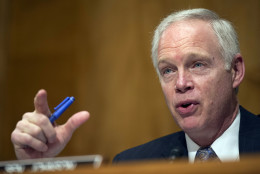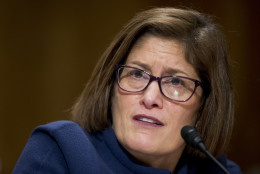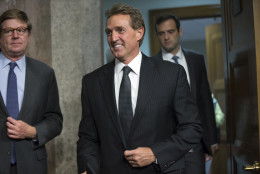James Lankford
-
Thousands of rules come out each year from regulatory agencies that place a large burden on the economy. Sen. James Lankford (R-Okla.), chairman of the subcommittee on regulatory affairs and federal management, joined Federal Drive with Tom Temin to discuss why regulatory reform is needed.
March 20, 2017 -
President Donald Trump signed an executive order calling on agencies to create regulatory reform task forces. The task forces will investigate how to "eliminate red tape" and regularly report back on progress to their respective agencies.
February 24, 2017 -
The Senate Homeland Security and Governmental Affairs' federal workforce subcommittee said it's on a fact-finding mission this year. Subcommittee Chairman James Lankford (R-Okla.) said he wants to hear from federal managers about the existing authorities and processes that make their jobs more difficult.
February 09, 2017 -
Gen. John Kelly, the President-elect's pick to be the Homeland Security Department's new secretary, said he recognizes DHS' immense challenges and plans to study up on the previous administration's attempts at management reform.
January 11, 2017 -
Sen. James Lankford (R-Okla.) rang in "wastebook" season on Monday by highlighting the offbeat side of government spending and addressing federal agency spending on legacy IT systems.
November 28, 2016 -
With 31 percent of the federal workforce eligible to retire by September 2019, most agencies acknowledge they're racing against the clock to recruit and hire the next generation of federal employees. But repeat, persistent challenges are preventing them from recruiting new, young talent, agency chief human capital officers say.
September 29, 2016 -
President Barack Obama's nominee for deputy director for management at the Office of Management and Budget told a Senate Committee he's ready to be a "front line leader" for the presidential transition if he gets the job.
July 07, 2016 -
The House Oversight and Government Reform Committee wants to get a closer look at how many political appointees the Office of Personnel Management has converted to career employees over the past nine months.
July 01, 2016 -
Being on GAO's high-risk list isn't meant to be a life sentence for agencies and programs. The list is a way to encourage agencies to take improvement actions on their own and lead by example.
June 17, 2016 -
The Senate left hundreds of amendments on the floor when it passed the defense authorization bill. Federal News Radio takes a look at some of the more interesting ones.
June 15, 2016 -
The bills aim to improve coordination within and between agencies, further reduce duplicate efforts and improve availability of information on government grants and data.
May 26, 2016 -
The Social Security Administration has a backlog of a million disability cases to process, but the leaders of a Senate oversight subcommittee say the agency's plan to reduce the backlog raises too many red flags about due process.
May 12, 2016 -
A group of five senators introduced a bill that would add new incentives for agencies to sell or lease empty and under-used federal property. The Federal Property Management Reform Act also sets stricter requirements for keeping track of federal buildings.
February 05, 2016 -
The Senate Homeland Security and Governmental Affairs Committee hit Beth Cobert, the nominee to be the permanent director of the Office of Personnel Management, with a wide range of questions at her nomination hearing. But the committee is also looking for more transparency and better communication between OPM and Congress.
February 04, 2016 -
Federal wastebooks do make fun reading, and they do manage to portray some of the absurdity that creeps into an organization as vast as the U.S. federal government. My problem is that the effort is froth.
December 09, 2015



